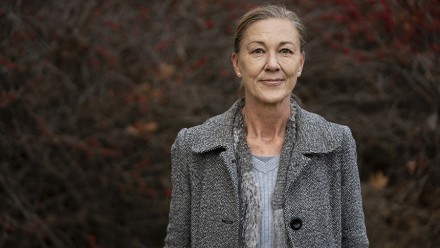How doctors deal with breaking bad news
Written by Tabitha Carvan
You don’t ever want to go in that room,” Professor Imogen Mitchell says, pointing at a doorway as we walk through the corridors of the Canberra Hospital.
I’m at the hospital to write a series called ‘Inspiring Doctors’. The photographer and I have spent the day walking with 10 different doctors through parts of the hospital I didn’t even know existed, and past many rooms I never want to go in. This room, however, seems perfectly innocuous. A small meeting room in the intensive care unit (ICU) with pastel-coloured chairs.
“That’s where you get the difficult news,” Mitchell explains.
Clinical practice guidelines for how doctors should break bad news have traditionally focused on reducing the impact on patients and their families. However, according to Associate Professor Rhonda Brown, of the ANU Research School of Psychology, a more holistic approach is required.
“From the other point of view, the doctor can find the task really, really stressful and anxiety provoking,” she says.
“Nobody likes to be the bearer of bad news or deal with another person’s emotional response after the fact, but the impact can be even worse for doctors. They are often chronically stressed, clinically burnt-out and emotionally exhausted, so the thought of embracing an experience like that and sitting down with an emotional patient can be especially confronting.”
In studies measuring stress responses in doctors who are delivering bad news in simulated consultations with (very convincing) actors, Brown’s research group has been able to identify ways to potentially minimise the negative impacts. Counter-intuitively, it’s by embracing this upsetting experience – rather than avoiding it or trying to hurry it – that doctors can reduce their own anxiety.
One of her PhD students found that, while all doctors in the study were stressed in anticipation of the consultation, stress levels resolved more quickly in doctors who engaged actively and empathetically with the patient.
While emotional distance can often benefit doctors in some situations, especially in an emergency, it can be harmful in interactions like breaking bad news.
“It’s pretty clear that, although it’s a difficult task for doctors, if they just jump in there and engage with the patient and deal with the news as best as they can, even if they cry themselves, the better off they are psychologically.”
For the full story, go here - https://science.anu.edu.au/research/research-stories/how-doctors-deal-br...










